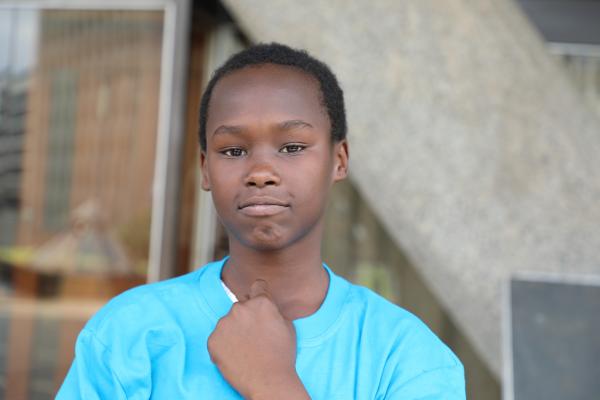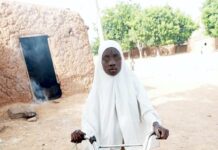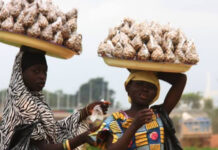Armon Kiprotich,14, from Nairobi was a finalist of UNICEF Kenya’s CRC@30 children’s competition. For Day of the African Child 2020, he took part in a young reporters’ media conference with regional UNICEF experts, to discuss the impact of COVID-19 on children in Africa.
Such a vibrant and young continent, Africa, a lively and bright continent. Perfect, right? With coronavirus entering the ring with Africa, it wasn’t the only opponent we face. In fact, it is only the icing on the cake. Already rampant with political chaos and a terrible state of affairs, now this? Questions were popping up as the virus brought the continent to a standstill. But who was asking, and asking what?
Everyone will start asking. When will we get back to work? How will the nation move forward economically? These are valid questions but with a young population, who is asking the African child? The common assumption that we children can’t comprehend a situation like this and form a sensible opinion or question is ludicrous. Luckily, UNICEF opened a forum where burning questions and possible solutions were expressed in the Young Reporters Media Conference.
The conference consisted of a seasoned panel of UNICEF experts in the areas of health, education and children’s welfare. Proficient young reporters had topical questions for them. My question was: Is there a steady supply of water in rural/arid areas to ensure handwashing in these times of the pandemic? My question was not to look for an answer but to spark a conversation, because the problem had already shaken the continent pre-pandemic.
Read Also:
This question was tackled by [UNICEF East and Southern Africa] Water and Sanitation Specialist Fahari Tunhuma, who stated that in arid areas most communities are nomadic, meaning their movement hinders accessibility of organizations like UNICEF to provide clean, treated water. This is scarce considering the communities use open surface water, which is often the opposite of sanitation. This brought forth a suggestion to provide water in public places like the market, where people meet. However, poor infrastructure has also proven a foe in providing proper sanitary measures and such a situation can only be fixed by good government, as far as I see it.
UNICEF primarily focuses on children’s welfare. Being a child ambassador, I am bound to look at it from a child’s perspective and how it affects us. So the question of how this affects children comes up. As obvious as it sounds, it really speaks to children’s wellbeing health-wise, putting the life of a potential asset to society at the mercy of a clean cup of water. This humanitarian crisis is often overshadowed by more economic/financial constraints and woes.
It is unfair for an urban child to expect to live to see his 80s, while a rural child may only live until his teens. It is not as often spoken about as national debts, but we owe our humanity to give attention and act upon this issue. Unfortunately, it will prolong its savage effects on the children who have to live with it long after coronavirus has died out.
As much weight as my question carried, so did all the other questions asked. Take education: what about the continuity of learning? A teaching caravan moving community-to-community in rural areas was suggested. On abuse, what about children stuck at home with abusive parents who force practices such as FGM on their daughters? What about the physiological effects on a child during this period? What about the credibility of the information given?
All of this is just the tip of the iceberg. Many are asking, some are experiencing. Us young reporters are trying to do our duty by questioning and putting situations from different angles to inform, unite and bring hope in times like these.
In times of darkness. Some think that true talents are sports and singing but some children are also gifted in reporting on issues. These skills help nurture diplomats and politicians that will one-day shape the structure of society, depending on how their skills were sharpened. It is therefore the duty of interested parties like parents to support and hear their children seeing the media conference as a bell.
With a young population comes a pool of fresh ideas and room for innovation that is waiting to be explored and exploited. New brooms sweep clean, they will wake up the dormant juggernaut continent of Africa. Better start using new brooms.



























